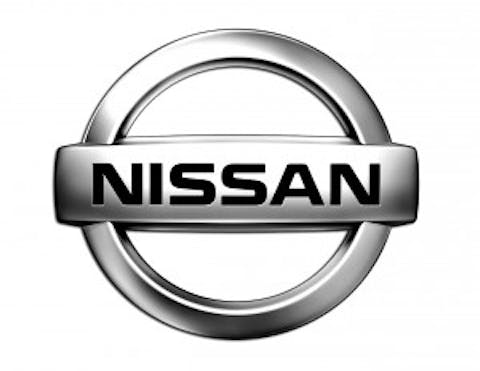While persistently high gasoline prices are prompting more consumers to consider an electric car — aka a battery electric vehicle (BEV) — most automakers are not taking this market seriously. Technological advances in recent years make electric cars look increasingly attractive. Those who ignore the future may find they have no future. This article is about how 5 companies are approaching electric car sales and the possible long-term impact on their investors.
1. Nissan Motor Co., Ltd. (ADR) (OTCBB:NSANY) and Tesla dominate U.S. electric car sales
Two of the smallest automakers by market cap, Nissan Motor Co., Ltd. (ADR) (OTCBB:NSANY) and Tesla Motors Inc (NASDAQ:TSLA), at $44.2 billion and $18.6 billion, respectively, dominate the electric car market in the US. Together, they account for nearly 88% of sales.

Source: InsideEVs.com
Ford Motor Company (NYSE:F), General Motors Company (NYSE:GM) and Honda Motor Co Ltd (ADR) (NYSE:HMC) combine for just 6% of the EV market. Last year, total sales at Ford Motor Company (NYSE:F), General Motors Company (NYSE:GM) and Honda Motor Co Ltd (ADR) (NYSE:HMC) were flat or declined, while Nissan Motor Co., Ltd. (ADR) (OTCBB:NSANY) and Tesla Motors Inc (NASDAQ:TSLA) enjoyed rising sales.
| Ticker | 2012 YoY Change in Sales |
| F | (1.5%) |
| GM | 1.3% |
| HMC | (11.3%) |
| NSANY | 7.2% |
| TSLA | 102.3% |
An examination of their approach to the market makes it clear that Nissan Motor Co., Ltd. (ADR) (OTCBB:NSANY) and Tesla Motors Inc (NASDAQ:TSLA) are committed to electric cars, and Honda is getting religion. Ford Motor Company (NYSE:F) and GM, in contrast, are only playing the emissions compliance game.
2. Some prices are too high for the target market
Except for Tesla Motors Inc (NASDAQ:TSLA), the other automakers mentioned have targeted the small car market. Unfortunately, in some cases, the prices aren’t very small. To keep things simple, let’s look at the lowest trim offerings for their electric cars. The cars are: the Ford Focus Electric, Chevy Spark EV, Honda Fit EV, Nissan Leaf S and Tesla Model S.
The Chevy Spark EV is the cheapest, with a base price of $19,995 after the $7,500 federal tax credit, followed by the Nissan Leaf S. But, buyers with taxable income under $45,900 won’t be able to take full advantage of this credit because their taxes are too low.
| Ticker | Model | MSRP | Price after Federal Tax Credit |
| F | Focus Electric | $35,200 | $27,700 |
| GM | Chevy Spark EV | $27,495 | $19,995 |
| HMC | Fit EV | $37,415 | $29,915 |
| NSANY | Leaf | $28,800 | $21,300 |
| TSLA | Model S | $69,900 | $62,400 |
Source: FuelEconomy.gov, GM.com
Ford’s MSRP of more than $35,000 is still unrealistically high, even after the $4,000 price cut. Do some of these automakers really want to sell these cars?
While Honda’s sticker price is high, that’s irrelevant, because the company is only leasing its 2014 model (see below).
3. It’s been suggested that automakers lose money selling electrics
Last month, Kelley Blue Book suggested that most companies lose money on electrics. Eric Loveday of InsideEVs.com believes that only Nissan Motor Co., Ltd. (ADR) (OTCBB:NSANY) and Tesla Motors Inc (NASDAQ:TSLA) are making a profit on their sales.
It is no secret that Ford would rather sell hybrids. And Toyota may abandon the RAV4 EV because of losses, and just buy the emission credits it needs in California.
4. Cars with driving ranges less than 100 miles are unattractive
In a global survey conducted more than two years ago, only 20% of Americans said they would consider buying an electric car with a range of 100 miles or less. Yet that is what most automakers offer.
| Ticker | Model | Battery Size (kwh) | EPA Mileage Range | Cost to Drive 25 Miles |
| F | Focus Electric | 23 | 76 | $0.92 |
| GM | Chevy Spark EV | 21 | 82 | $0.87 |
| HMC | Fit EV | 20 | 82 | $0.87 |
| NSANY | Leaf S | 24 | 75 | $0.87 |
| TSLA | Model S | 60 | 208 | $1.05 |
Source: FuelEconomy.gov
Only Tesla Motors Inc (NASDAQ:TSLA) meets range expectations. By targeting the luxury market first, it can deliver a car with the necessary range. Tesla’s mass market car will also have a minimum range of 200 miles.
5. Owners show disinterest in cars with limited cargo space
While all of these cars are surprisingly roomy, cargo space is another matter. The first figure is with the rear seats up and the second, with them down.
| Ticker | Model | Passenger Space (cu. ft.) | Total Cargo Space (cu. ft.) |
| F | Focus Electric | 90.7 | 14.5/33.9 |
| GM | Chevy Spark EV | 86.3 | 11.4/23.6 |
| HMC | Fit EV | 89.3 | 12.0/49.0 |
| NSANY | Leaf | 92.4 | 25.4/31.4 |
| TSLA | Model S | 94.0 | 31.6/63.4 |
Source: Manufacturers’ web sites.
While Ford Motor Company (NYSE:F), GM and Honda’s designs apparently ignored parents shopping with children in tow, Ford seems to have at least recognized the problem after the fact. Its website features its “Cargo Management System.”

Wow, big enough for a gym bag and a pair of shoes!
Nissan Motor Co., Ltd. (ADR) (OTCBB:NSANY)’s decision to not skimp on storage space, coupled with its realistic price, helps to explain the Leaf’s popularity.
6. Charging times are too long, but some automakers don’t care
One major issue with battery-powered EV’s is charging time. Below, you can see how long it takes each vehicle to reach a full charge.
| Ticker | Model | Charging Time (hrs) @240 volts |
| F | Focus Electric | 4.0 |
| GM | Chevy Spark EV | 7.0 |
| HMC | Fit EV | 4.0 |
| NSANY | Leaf S | 7.3 |
| TSLA | Model S | 10.0 |
Source: Manufacturers’ web sites.
Charging time for the Leaf S can be reduced to 4 hours using an optional 6.6 kwh charger.
Though Ford, GM and Honda are ignoring the issue, Nissan and Tesla are addressing the problem by building fast-charging stations which can provide an 80% charge in 30 minutes or less.
Nissan will install more than 100 fast charging stations at its dealerships. Tesla expects to have Superchargers in most metropolitan areas this fall, and cover 98% of the US population and parts of Canada in 2015. Charging is free.
Tesla also offers a battery swap program, which can get you on your way in 90 seconds. Cost is $60-80–about the same as most fill-ups.
7. SOME ELECTRIC CARS ARE NOT AVAILABLE NATIONWIDE
The limited availability of the Chevy Spark EV suggests that GM is more interested in satisfying environmental regs than selling cars.
| Ticker | Model | Current Availability |
| F | Focus Electric | Nationwide at dealers with charging stations |
| GM | Chevy Spark EV | CA and OR only |
| HMC | Fit EV | CA, OR, NY, NJ, CT, MA, MD and RI. |
| NSANY | Leaf S | Nationwide |
| TSLA | Model S | Nationwide with some difficulty |
Sources: Ford.com, Engadget.com, Honda.com.
In fairness to Honda, it is testing a three-year lease-only program priced at $259/month. It provides everything, including collision insurance. Buyers just have to purchase liability insurance.
Dealers are fighting Tesla’s direct sales model in Colorado, New York, North Carolina, Texas, and Virginia. But their argument that it threatens the franchise system is baseless, because Tesla has no dealers of its own, and thus is not competing against them.
The vehemence of this resistance demonstrates dealers understand the seriousness of the threat represented by electric cars with 200-plus mile ranges once an adequate fast-charging system exists. Businesses don’t waste resources fighting phantom threats.
The bottom line.
If gas prices remain high, electric cars will continue to grow in popularity. In two and a half years, Tesla expects to offer a mass-market car with the range necessary to appeal to a wide audience. Like Nissan, it’s coupling that effort with the construction of a nationwide network of fast charging stations.
But I believe that none of the other four automakers will have an affordable 200+ mile range car for sale by the end of 2015, because of their inferior and more expensive battery technology. This head-in-the-sand approach is not viable long-term. Automakers without competitive EV products could lose share to those who do.
The article 7 Things to Know About Electric Vehicles originally appeared on Fool.com and is written by Pamela Peerce-Landers.
Fool contributor Pamela Peerce-Landers owns shares of Ford and Tesla Motors. The Motley Fool recommends Ford, General Motors, and Tesla Motors . The Motley Fool owns shares of Ford and Tesla Motors.
Copyright © 1995 – 2013 The Motley Fool, LLC. All rights reserved. The Motley Fool has a disclosure policy.




